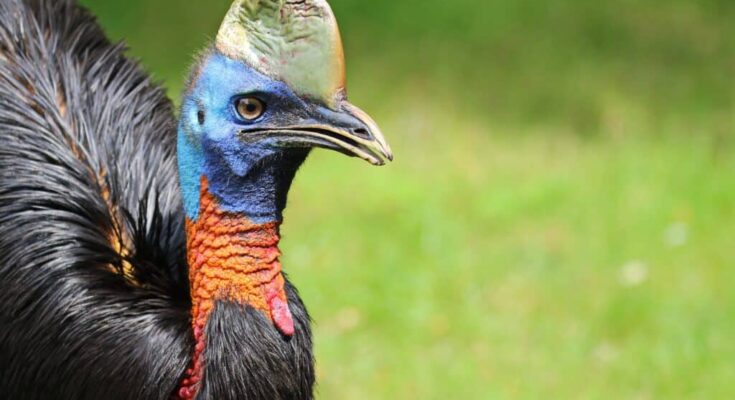
A southern cassowary, belonging to one of the largest and deadliest bird species on the planet, has hatched for the first time at a bird park in the Cotswolds, United Kingdom. This event has been 25 years in the making. Keepers at Birdland in Bourton-on-the-Water, Gloucestershire, have been trying to breed the giant bird for a quarter century.
There are only four chicks of the southern cassowary that have hatched in Europe, and the newly born chick is only the second to have hatched in the UK.
Birdland Keeper Alistair Keen described this moment as “very special indeed” to the BBC but also mentioned the bird’s notorious reputation. Keen stated, “Cassowaries have a reputation as one of the world’s most dangerous birds, and their size, speed, and power combined with their dagger-like, 10cm claws mean we have to take looking after them extremely seriously.”
Why is the cassowary the world’s deadliest bird?
The cassowary, which is a species related to the emu and native to the tropical forests of New Guinea and northern Australia, is considered the world’s deadliest bird, according to Keen, due to its powerful legs, sharp claws, and aggressive behavior when threatened.
There have been several reports of people being killed by cassowaries, with the latest one being in 2019, when 75-year-old Marvin Hajos from Florida was killed by his pet cassowary in what authorities described as a “tragic accident.”
At the time, Alachua Deputy Chief Jeff Taylor explained to media that Hajos was near his pet cassowary when he fell and was attacked and killed by the bird.
The chick’s parents are also “European”
A male cassowary from the bird park Avifauna in Alphen, Holland and a female from Frankfurt, Germany were the ones that conceived the baby chick in the UK. The pair had been at the Cotswolds Birdland since 2012 thanks to the European Endangered Species Programme.
However, the birth of cassowary chicks in the UK would have been extremely unusual prior to 2021. This is due to the complex behavioral and environmental needs of the species. For instance, cassowary males incubate eggs for up to two months and then proceed to look after the hatchlings. Once the chicks hatch, the male bird leads them to his regular feeding grounds and protects them for up to sixteen months.
Despite these complex biological needs, however, the European Endangered Species Programme plays a crucial role in the conservation of endangered species like the cassowary.
Coordinated breeding efforts across zoos and wildlife parks in Europe help maintain genetically diverse populations of the bird, reducing the risk of inbreeding and ensuring healthy future generations.



